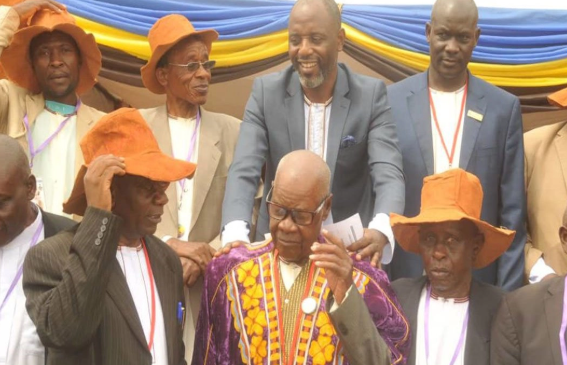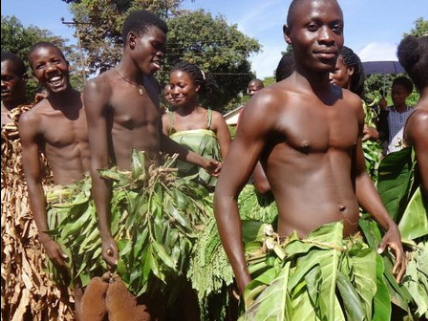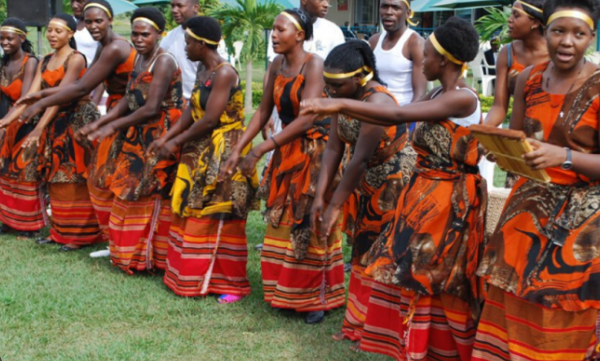The Rich and Vibrant Busoga Culture in Uganda
The Busoga culture in Uganda is one of the most fascinating and well-preserved traditions in East Africa. Located in the eastern part of Uganda, the Busoga region is home to the Basoga people, who have a rich heritage that encompasses unique leadership structures, social norms, marriage customs, culinary practices, naming conventions, dressing styles, and language. The Busoga culture in Uganda is deeply rooted in history, with traditions passed down through generations, maintaining their authenticity despite modern influences.
This article explores the origins, traditional leadership, social behavior, marriage customs, cooking methods, naming traditions, dressing styles, way of life, and language of the Basoga people, offering a comprehensive understanding of their cultural identity.
How the Busoga Culture Started
The Basoga people trace their origins to migrations from central and western Africa. According to oral traditions, the founders of Busoga were part of the larger Bantu migration that settled in the Great Lakes region. The Basoga are closely related to the Baganda, their western neighbors, but they developed distinct cultural practices over time.
The name “Busoga” is derived from “Musoga,” which refers to a person from the region. The Basoga established a decentralized system of chiefdoms, each led by a hereditary ruler known as the Kyabazinga. The Busoga culture in Uganda evolved through interactions with neighboring kingdoms, trade, and agricultural practices, shaping their unique identity.

Traditional Leadership in Busoga
The traditional leadership of Busoga is centered around the Kyabazinga, the cultural head of the Basoga people. Unlike the centralized monarchy of Buganda, Busoga’s leadership was historically a federation of chiefdoms, each with its ruler (Omukama). The Kyabazinga was chosen from among these chiefs, ensuring unity while maintaining regional autonomy.
The Kyabazinga plays a crucial role in preserving the Busoga culture in Uganda, overseeing cultural ceremonies, resolving disputes, and promoting development. The royal palace, located in Bugembe near Jinja, serves as the cultural and administrative center of Busoga.
Social Behavior and Community Life
The Basoga are known for their strong sense of community and hospitality. Respect for elders is a cornerstone of their social behavior, with children taught to greet and honor their seniors. The extended family system is highly valued, with relatives often living in close-knit communities.
Traditional gatherings, such as Okubika (ancestral worship ceremonies) and Embalu (circumcision rituals for the Bamasaaba subgroup within Busoga), strengthen social bonds. Music and dance, particularly the Tamenhaibunga dance, are integral to celebrations, showcasing the vibrancy of the Busoga culture in Uganda.

Marriage Customs in Busoga
Marriage among the Basoga is a significant cultural institution, marked by elaborate ceremonies. The process begins with Okwanjula (introduction), where the groom’s family formally visits the bride’s family to seek her hand in marriage. This is followed by negotiations on the bride price (Obwaruka), which traditionally includes livestock, money, and other gifts.
The wedding ceremony (Okukyala) is a joyous event featuring traditional dances, feasting, and the exchange of gifts. Polygamy was historically practiced but has declined due to modern influences. Marriage in Busoga is not just a union of individuals but of families, reinforcing social cohesion.
Traditional Cooking Methods
The Basoga have a rich culinary tradition centered around staple foods like matooke (steamed green bananas), posho (maize meal), sweet potatoes, and cassava. A popular dish is Luwombo, where meat, fish, or chicken is steamed in banana leaves with groundnut sauce or other spices.
Food preparation is often communal, with women playing a central role. Traditional cooking methods include using firewood stoves and grinding stones for milling flour. Meals are served on woven mats, with families eating together as a sign of unity.
Naming Conventions in Busoga
Naming in Busoga is a meaningful process, often reflecting circumstances surrounding a child’s birth, ancestors, or desired virtues. Common names include:
-
Male names: Waiswa (born during a difficult time), Muwanguzi (savior), Isabirye (patience).
-
Female names: Nabirye (mother of twins), Nambozo (born during a rainy season), Naigaga (born after many siblings).
Clan names (Emiziro) are also significant, linking individuals to their ancestral lineage. The naming system reinforces identity and continuity within the Busoga culture in Uganda.
Traditional Dressing Styles
Basoga traditional attire reflects their cultural pride. Men wear Kanzu (a long white robe) paired with a suit jacket for formal occasions, while women adorn Gomesi (a brightly colored floor-length dress with puffed sleeves and a sash).
For everyday wear, men may put on trousers with a shirt, while women wear Kitenge (wax-printed fabric) wrappers and blouses. Accessories like beads and headscarves add elegance to their dressing. This attire is prominently displayed during cultural festivals and ceremonies.
Way of Living: Economic and Social Life
The Basoga are primarily agrarian, cultivating crops such as coffee, sugarcane, maize, and cassava. Fishing is also significant due to their proximity to Lake Victoria and the Nile River. Handicrafts, including basket weaving and pottery, supplement their livelihoods.
Social life revolves around communal labor (Bulungi Bwansi), where villagers work together on projects like road maintenance and building homes. This collective spirit strengthens unity and progress within Busoga.

The Lusoga Language
The Basoga speak Lusoga, a Bantu language closely related to Luganda. It has several dialects, including Lugwere and Lusiki. Lusoga is used in education, local media, and daily communication, preserving the Busoga culture in Uganda. Proverbs and folktales in Lusoga teach moral lessons, ensuring cultural transmission to younger generations.
The Busoga culture in Uganda is a dynamic and enduring heritage that continues to thrive amidst modernization. From their traditional leadership and social norms to marriage customs, culinary arts, naming traditions, and language, the Basoga people uphold a rich cultural identity. By preserving these traditions, they ensure that future generations remain connected to their roots, celebrating the uniqueness of Busoga in Uganda’s diverse cultural landscape.
Through festivals, music, storytelling, and daily practices, the Basoga keep their traditions alive, making the Busoga culture in Uganda a vital part of the nation’s heritage.

